Rice: Research to Production - 2015 Course Participants
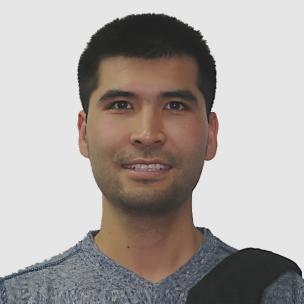
Hussain Sharifi
Afganistan
PhD Candidate in Horticulture and Agronomy
University of California Davis
Hussain Sharifi is an Afghan national born into a small farm-holder family in the remote province of Bamyan. He became the first in his family history to hold a college degree upon completing his B.S. in Plant Pathology at Kabul University. In 2009 he was accepted at University of California Davis to pursue an M.S. in International Agricultural Development. Upon completion of his M.S. in 2011, he began Ph.D. research in Horticulture and Agronomy—also at University of California Davis—under the direction of Dr. Bruce Linquist. His overall research objectives are to advance the scientific understanding of rice crop growth and development, coupled with assessing different irrigation management (i.e. alternate wetting-drying system) and to provide a predictive tool to farmers in order to improve their ability to manage their crop efficiently. Hussain is due to complete his Ph.D. research in early 2016, and plans to pursue a career in international crop research, with a focus on rice cropping systems.

Heng Chou Long
Cambodia
Farming System and Economic Official
Department of Agricultural Extension, General Directorate of Agriculture,
Ministry of Agriculture, Forestry, and Fisheries
I was born in Cambodia and has a Cambodian citizenship. In 2009, I had completed the Associate Degree of English Literature at Human Resources University (HRU), CAMBODIA while in 2011 I completed two more Bachelors of Science, one the major is Agronomy at Prek Leap National School of Agriculture, the other one is Professional Communication in English at the HRU. Recently, I have been working as Farming System and Economic Official at Department of Agricultural Extension, General Directorate of Agriculture. Last but not the least; I have been awarded the special course provided by IRRI, RR2P Program. It is really great to have a grand chance to understand more about RICE Production and also increase my personal experiences both knowledge capacity and best practice. Finally, I am going to absorb all my upcoming experiences into my projects to improve the organization or department and the outcome of farmers in rural Cambodia.
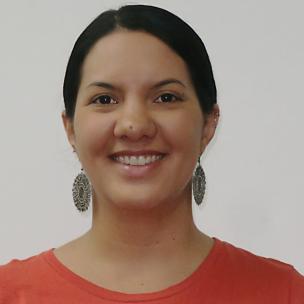
Ana Maria Bossa-Castro
Colombia
PhD Student in Plant Pathology
Colorado State University, USA
I was born and raised in Bogotá, Colombia. I did my bachelor's degree in biology at the Universidad Nacional de Colombia. During the last year of my undergraduate studies, I was involved in the study of signaling pathways related to defense responses to Cassava Bacterial Blight. After this, I worked as a research assistant, for more than two years, at the International Center for Tropical Agriculture (CIAT) in the Biotechnology Research Unit. There I worked in the development of new rice hybrids and the implementation of sequencing technologies for agricultural advancement purposes. As part of my work, I was a visiting scholar in the laboratory of Dr. S. Dellaporta at Yale University on two occasions. Currently, I am a PhD student in Plant Pathology at Colorado State University, and I received the Monsanto’s Beachell-Borlaug International Scholarship for my PhD. My research project is aimed at identifying regions in the rice genome that confer resistance against three devastating bacterial pathogens in Africa and Latin America. My main goal is to contribute to the development of rice cultivars with durable resistance to pathogens.
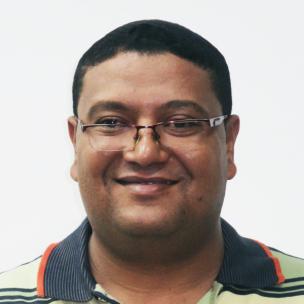
Potros Mekhael
Egypt
Researcher - Rice Agronomy
Rice Research and Training Center, Egypt
I grew up in Kafr El-Sheikh in Egypt. In 2002 I completed my Bachelor of Agriculture Science at Tanta University, majoring in agronomy. I worked as a senior Researcher at Sakha Agricultural Research Station. In 2005, I got M.Sc. degree in nitrogen fertilization for some Egyptian inbred rice cultivars under drill-seeding methods. In 2010, I got Ph.D. degree in fertilizer requirements for rice Egyptian hybrids. Now I am looking forward to developing a greater understanding of the challenges of rice production in different countries whilst at IRRI as well as getting to know different experiences from all over the world.
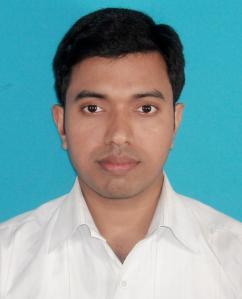
Narayan Chandra Banik
India
Specialist- Agricultural Research and Development
International Rice Research Institute, India Office
I was born and grew up at a village in Nadia district in the state of West Bengal in India. In 2006 I completed a Bachelor of Science, honours degree in agriculture at Bidhan Chandra Krishi Viswavidyalaya (state agricultural university) in West Bengal. I completed masters degree in 2008 and doctoral degree in 2013 in Agronomy from the same university. My research work in masters degree was on 'Performance of groundnut cultivars under different dates of sowing' and in doctoral degree was on 'Evaluation of nutrient management for mung bean [Vigna radiata (L.) Wilczek] in Gangetic Alluvial soil'. I worked as a research associate in the Zonal Project Directorate, Zone-II of Indian Council of Agricultural Research in 'National Initiative on Climate Resilient Agriculture' project from 2011 to 2014. Currently I am working as Specialist- Agricultural Research and Development in International Rice Research Institute, India in the 'Cereal Systems Initiative for South Asia' project since 2014. I am looking forward to develop a greater understanding of the challenges of rice production and the global problem of food security whilst at the training course, as well as increasing my knowledge about germplasm exchange and molecular genetics.
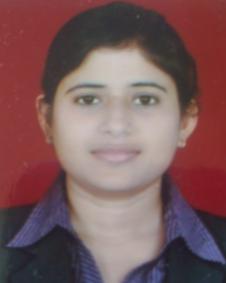
Preeti Bharti
India
Specialist-Training and Outreach
International Rice Research Institute
I am from Bihar in India. In 2013, I completed a Post graduate diploma in rural management at Xavier University, Bhubaneswar, India. Before that, in 2011, I completed my bachelor of science in agriculture with an honours degree from Odisha University of Agriculture and technology, Odisha, India. After my post-graduation I worked for one and half years as a project associate in AISECT, an organization which works on skill development and capacity building of unemployed youth. I am currently working in International Rice Research Institute as Specialist-Training and Outreach based at Bhubaneswar, Odisha. I am looking forward to developing a better understanding of rice production, as well as increasing my knowledge about germplasm exchange and molecular genetics.
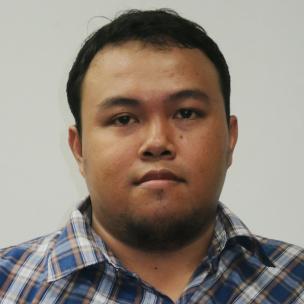
Bhakti Priatmojo
Indonesia
Researcher staff in Researcher Group of Agriculture Policy Analysis
Indonesian Center of Food Crops Research and Development, Indonesian Agency for Agricultural Research and Development, Ministry of Agriculture
I grew up in Central Borneo, Palangkaraya City in Indonesia. In 2012, I completed my Bachelor’s majoring in Social Agriculturtal Economic / Agribisnis at Palangkaraya University. I have worked as a Researcher Staff / Researcher Candidate at Researcher Group of agriculture policy analisis on Indonesian Center of Food Crops Research and Development (ICFORD) from 2014. ICFORD is responsible for research and development of food crops (rice, maize and other cereals, legumes such as soybean, and peanuts). Its work covers plant genetics (management of germplasm and breeding) and resource management to improve production systems, harvest and post-harvest handling. There are many things that I am looking forward to learning in this training, such as developing a greater understanding of the basics and challenges of rice production, the global problem of food security and how to improve the livelihoods of resource poor rice producer whilst at IRRI.Also an understanding of how to structure effective international collaboration, as well as increasing my knowledge about germplasm exchange and molecular genetics.
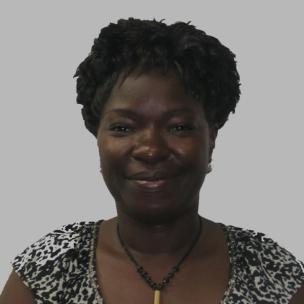
Phoebe Anyango Sikuku
Indonesia
Lecturer (Plant physiology and biochemistry)
Maseno University, Kenya
I grew up in rural area in western Kenya. In 2002 I completed undergraduate studies having done Bachelor of Education science specializing in Biology. I worked under Teacher’s service commission as a high school graduate teacher. I enrolled for a master’s course in 2004 and specialized in plant physiology and biochemistry where I determined the effects of water deficit on growth and development of NERICA rainfed rice varieties and recommended water deficit tolerant varieties. In 2012, I completed PhD studies. I am currently collaborating with researchers from Kenya agricultural Livestock and Research Institute (KALRO) in identifying low nitrogen tolerant improved rainfed rice varieties for resource poor rural farmers. I am looking forward to interacting with the experts in rice research and getting firsthand experience on cutting edge research and rice production in Asia which can in turn be replicated in my country. I am also looking forward to understanding how to structure effective international collaborations and to build contacts to work effectively as part of the international research community in future.
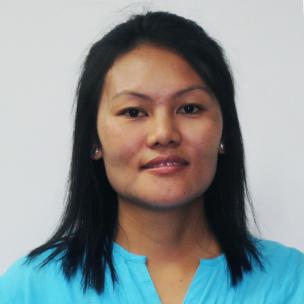
Manu Maya Magar
Nepal
Scientist
Biotechnology Division, Nepal Agricultural Research Council (NARC)
I grew up in Syangja District, Western Development Region of Nepal and I did my schooling there. In 2009 I completed my Bachelor of Science majoring in Horticulture at Institute of Agriculture and Animal Science, Tribhuwan University, Rampur Chitwan, Nepal. After this, I worked as a District Project Manager in Social Development Forum (SDF), an NGO at Banke district for Food Security Initiative Project funded by European Commission and implemented in collaboration with Save the Children Nepal and IDE. In 2010 I got an opportunity to study Masters of Science with major in Molecular Biology and Plant Biotechnology in Achary N.G. Ranga Agricultural University, Rajendranagar, Hyderabad, India under Nepal Aid Fund awarded by Embassy of India , Kathmandu. During my masters research I worked on marker assisted breeding in rice for blast and bacterial blight resistance in rice. After completion of M.Sc.Ag, i joined an INGO, Terre des hommes Germany as Deputy Country Coordinator and recently I have been working as a scientist in Biotechnology Division, NARC. I am looking forward to develop a greater understanding of the challenges of rice production and global problem of food security whilst at IRRI, as well as widening my knowledge on germplasm exchange and molecular genetics.
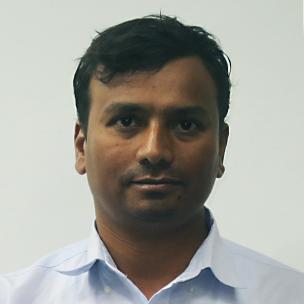
Santosh Raj Tripathi
Nepal
Scientist-1
Nepal Agricultural Research Council
I am Santosh Raj Tripathi. I have completed my schooling from Shree Yogendra Madhyamik Vidhyalaya, Tukuche, Mustang, Nepal. After completion of Secondary school, I joined Institute of Agriculture and Animal Science (IAAS)-Rampur, Tribhuvan University and completed M. Sc. (Ag) with an Outstanding Academic Performance. I was batch topnotcher student of M.Sc. IAAS-2004 and Cornell University of America had provided Scholarship as well as research grant during M.Sc. study. I worked as Research Associated in Institute of Agriculture and Animal Science/ Cornell University, USA, CRSP-carbon sequestration project, Rampur from July 2005 To June 2006. After that I was employed by Samuhik Sewa Multipurpose Centre, Kathmandu as field coordinator from September 2006 to November 2007. Then, I was appointed as Lecturer on Agricultural Engineering under the Institute of Engineering for about two years. During that period, I was promoted to Head of Department (HOD) and worked for six months. Subsequently, I am working in Nepal Agricultural Research Council (NARC) as Scientist (Agronomy/Plant Breeding and Genetics) since June 2010 and got field experiences in crop breeding; varietal selection; local resource conservation; low cost technologies and participatory technology development and adoption in farmer field etc.
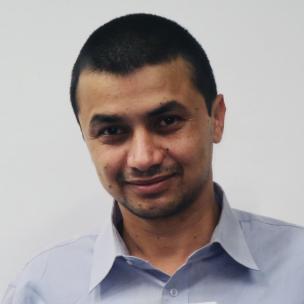
Dipendra Pokharel
Nepal
Crop Development Training Officer
Regional Agriculture Training Center
Pokhara-5, Kaski
I am from rural farming community of mid- hill region of Nepal. I had completed a Bachelor of Science with the major in Agricultural Economics by 2008, followed by a Master's degree of Science in Agriculture (Genetics and Plant Breeding) by 2011 from the Institute of Agriculture and Animal Sciences, Rampur, Chitwan, Nepal. In 2010 I was appointed as crop development training officer at Ministry of Agricultural Development, Nepal. I had a small grant project on capacity enhancement of agricultural professionals about climate adaptation in agriculture in Western development region of Nepal funded from WWF/USAID/Hariyo Ban Program. I had explored the genetic diversity of 60 different germplasms of Wheat (Triticum aestivum) including some international check varieties for drought adaptation using morpho-physiological traits for the thesis research. I had published 4 research articles in national journals, 3 conference papers (proceedings), more than a dozen of op-ed articles about food and agriculture issues of Nepal in Nepalese Newspapers. My dream is to develop my nation towards food security via boosting yield and productivity of cereal crops. A great understanding of the rice science production at IRRI, Philippines will boost my knowledge and skills about the rice science.
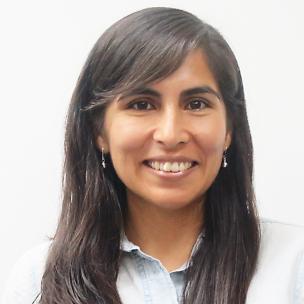
Lina Bernaola
Peru
PhD candidate in Entomology and minor in Plant Pathology
Louisiana State University, Louisiana USA
I was born and raised in Lima, Peru. I completed a Bachelor of Science in Biology from the National University of San Marcos and a minor in Molecular Biology, followed up by an honors degree focused on conducting research on the characterization of resistance to late blight in potato at the International Potato Center (CIP). After graduation, I developed a curiosity for agriculture and I worked as a research assistant at CIP in collaboration with the National Institute of Agricultural Research in the department of molecular biology and plant genetic resources conservation on genetically modified organisms in corn. Based on these experiences, I decided in 2010 to join Louisiana State University where I received my Masters degree majoring in Agronomy and Crop Sciences two years later. I am currently a Ph.D. candidate in the Department of Entomology at LSU under the supervision of Dr. Michael Stout. My project involves investigations of the mechanistic basis of plant resistance against above-ground and below-ground organisms in rice. I am studying the effects of mycorrhizal fungi, a symbiotic soil-borne organism, on rice resistance to insect herbivores. In my free time, I like traveling, photography and good company. I am looking forward to attend this course because I want to get hands-on experience working in the rice paddies of the Philippines to develop a better understanding of where my research belongs in the process of improving the lives of rice farmers and see firsthand the challenges of rice production at IRRI.
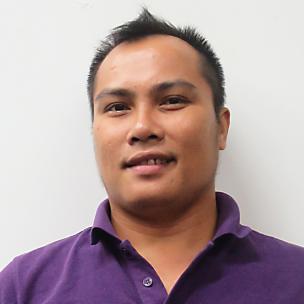
Julius G. Casil
Philippines
Agricultural Technologist
Local Government Unit of Luna, Apayao
Philippine Society of Agricultural Engineers
I grew up with a twin brother in the province of Cagayan Valley. In 2008 I completed a Bachelor of Science in Agricultural Engineering at Mariano Marcos State University. I worked as a research assistant in the Bureau of Agricultural Statistics now Philippine Statistics Authority after my graduation. After which, I worked as Rice Sufficiency Officer under the Location Specific Technology Development (LSTD) Program of the Philippine Rice Research Institute. I was assigned in Sultan Kudarat, packaging technologies specific to farmers’ location, and analyzing cultural practices on how they increase their rice production. After the LSTD program I worked as an Upland Technologist in the same institution under the Upland Rice Development Program. As an UpTech, I was captivated with the different traditional varieties and the methods of upland farmers’ production. Hence, my job was to develop farming systems, and capacitate the upland farmers through Farmers Field School. Consequently, I worked as a Science Research Analyst in the Department of Agriculture Northern Cagayan Experiment Station, handling different development research within several years. After engaging in rice research and extension, I now worked as Agri-infra and Postharvest coordinator of my hometown. My passion in rice research haunts me to cultivate the solutions to increase rice production in my community. I am handling 3 barangays with different challenges in rice production, and reached other farmers and fishermen through our radio program. As a new Agricultural Extension Worker, I am looking forward to enhancing my knowledge on the rice production practices in Asia and to know more about rice breeding, molecular genetics, and genomics. This is one of my remarkable experiences that I will treasure forever. Thank you IRRI and the Department of Agriculture.

Roda G. Capacao
Philippines
IRRI-Gawad Patnubay Scholar
Gawad Patnubay Scholarship Program
Visayas State University, Leyte
I was born and grew up in the Philippines with a Filipino Citizenship. Last April 2o15 I completed my Bachelor’s Degree in Agriculture major in Plant Protection at Visayas State University, Visca Baybay City, Leyte, Philippines with honors (Cum Laude). In May 2015, I was awarded as PMCP-Bayer Crop Science Best Undergraduate Thesis Award in Weed Science during the 46th Anniversary and Annual Scientific Conference of the Pest Management Council of the Philippines. Furthermore, I passed the Licensure Examination for Agriculturists, just recently. I am very thankful and lucky to be chosen as one of the representatives of this training course. With this, I am looking forward to gain more knowledge and hands-on experiences relating to rice breeding, molecular genetics and genomics.

Royette C. Santos
Philippines
IRRI-Gawad Patnubay Scholar
Gawad Patnubay Scholarship Program
Central Luzon State University, Nueva Ecija
I am one of the scholars of IRRI under Gawad Patnubay Scholarship Program. I am a fresh graduate; I finished Bachelor of Science in Agriculture Major in Crop Science at Central Luzon State University (CLSU) and graduated as Cum Laude. I grew up in Science City of Munoz, Nueva Ecija which is called as the Rice Granary of the Philippines. I passed the recently concluded Agriculturists Licensure Examination and landed on the Top 6 spot. I don’t have any work experience so far, that’s why I am really looking forward to this training to develop my skills and to have a better understanding of the different cultural practices involved in rice production as well as the current issues related to germplasm exchange and property rights.

Froline Sarco Red
Philippines
Science Research Specialist I
Department of Agriculture Regional Field Office VIII
I graduated with the degree of Bachelor of Science in Agribusiness (BSAB) at the Visayas State University in Baybay City, Leyte. I am an Agriculturist by profession. I passed the Agriculturist Licensure Exam last July 2013. After this, I worked as an Enumerator/ Research Assistant for Dr. Antonio P. Abamo in the Mid-term Performance Assessment of Irrigated Rice Production Enhancement Project (IRPEP) of the DA RFO-8- Rapid Food Production Enhancement Program. This experience gave me the opportunity to work with farmers and other public institutions of the different municipalities in the province. Currently, I am working under the Research Division at the Department of Agriculture Regional Field Office 8, as a Science Research Specialist I. As a staff, I was exposed to office and field work relative to the implementation of the Agricultural Research Projects in Region 8. I`m undertaking the National Cooperative Testing for Hybrid at Babatngon Experiment Station, as well as staff for the Next-Generation Project in the region. I am looking forward to developing a greater understanding of the challenges of rice production in the Philippines as well as increasing my knowledge of doing research projects.
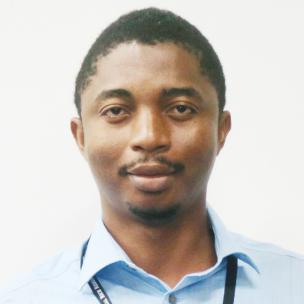
Mohamed Matthew Blango
Sierra Leone
PhD candidate in Agricultural Engineering
Njala University, Sierra Leone
I was born in the Eastern Province of Sierra Leone. I attended the Bo Government Secondary School and went on to pursue a first degree in Agricultural Engineering at Njala University. In 2007, I completed a master’s degree in Soil and Water Engineering. I am married and have a son and a daughter. I am a staff of the Department of Agricultural Engineering, Njala University where I have been teaching and conducting research in water management and irrigation since 2005. I am currently undertaking research for my doctoral thesis, titled: The Performance of a Micro-Dam Rainwater Harvesting System in an Inland Valley Swamp. I am interested in how the micro-dam system will help farmers with their irrigation needs in Sierra Leone. Micro-dams are small-scale rain-harvesting systems that will allow rice farmers to harvest and store rainwater for future use. I hope that by using a combination of the Alternate Wetting and Drying (AWD) technology and biochar, along with these micro-dams, I will be able to help create a system that will contribute to Sierra Leone’s agricultural goals: ensuring food security, reducing poverty and conserving ecosystems. As a spring 2015 Fellow with Borlaug LEAP, I have been been working with mentors Dr. James Quilty of the International Rice Research Institute (IRRI) in the Philippines and Dr. Richard Cooke of the University of Illinois. During my time with them, I hope to refine and focus my research objectives while learning valuable techniques and strategies in the area of water management and engineering.
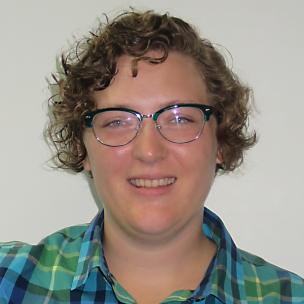
Vivian Bernau
United States
PhD Student in Horticulture and Crop Science
The Ohio State University, Columbus, Ohio USA
I grew up on a small fruit and vegetable farm in Iowa, USA. In 2012, I graduated from Iowa State University with bachelor degrees in Agronomy and Horticulture. Before beginning a PhD program at The Ohio State University in 2014, I spent two years gaining work experience with two organizations: 1) the USDA-ARS on the Maize Curation and the Genetic Enhancement of Maize (GEM) projects in Ames, Iowa, USA., 2) the International Center for Tropical Agriculture (CIAT) in Cali, Colombia on a global initiative working mapping the species distributions of crop wild relatives. My PhD research focuses on assessing chile pepper germplasm from southern Mexico for heat and drought stress tolerance. I am looking forward to visiting field sites and meeting with farmers to gain a better perspective of the abiotic, biotic, and financial pressures farmers face.

Stephen Cohen
United States
PhD student in Cell and Molecular Biology
Colorado State University
I graduated with a Bachelor of Science degree in cellular and organismal biology from Lock Haven University of Pennsylvania in 2013. Throughout my degree, I got research experience by working on independent research projects, attending a Research Experience for Undergraduates at North Carolina State University, and working for the Plant Pathology department at Pennsylvania Department of Agriculture. I was accepted into the Cell and Molecular Biology graduate program at Colorado State University, starting in the Fall semester of 2013. Following laboratory rotations, I was accepted into the lab of Dr. Jan Leach. My current research focuses on investigating the effects of high temperatures on disease resistance in rice by taking a transcriptomics approach. I am looking forward to learning about rice production and all of the operations at IRRI.
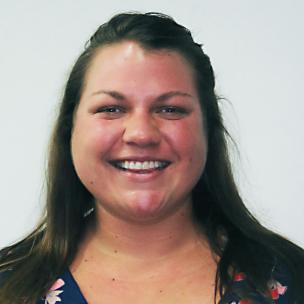
Emma Flemmig
Unites States
PhD student in Crop & Soil Environmental Sciences
Virginia Tech, Blacksburg
I grew up in rural Iowa in the United States. In 2010 I completed a Bachelor of Science majoring in agronomy at Iowa State University. In 2012, I earned a Master of Science in Crop Science through the interdepartmental Plant Breeding program at North Carolina State University. My thesis research was on utilization of molecular markers to pyramid resistance genes to stem, stripe, and leaf rust and Fusarium Head Blight, in winter wheat with an emphasis on targeting durable resistance pyramids to the 'Ug99' family of stem rust races. More generally, I am particularly interested in utilization of both genetic resources and cropping systems research to improve smallholder farmer livelihoods through management of both disease and financial risk. I am currently a PhD student conducting research on the relationships among socioeconomic status, geography, crop diversity and household food security in rural Haiti. I am specifically developing a simple preliminary assessment method designed to help agricultural development specialists improve how they target research and extension efforts based on the levels of food security and crop diversification that already exist in the region where they work. I will be going to the Punjab region of India in January to replicate my study in a geographic context that provides a stark contrast to Haiti--a wheat-, as opposed to maize-, based system which has undergone great technological change and historical reductions in crop diversity. I hope to have the opportunity to continue researching and advising development specialists in various agroecosystems on the merits of specialized versus diversified crop production systems in unique ecological and economic contexts after graduating. I am looking forward to developing a greater understanding of rice-based agroecosystems to improve my ability to adapt my preliminary assessment method to them, as well as increasing my knowledge of germplasm diversity in rice.

Gena Hoffman
United States
PhD candidate in Plant Biology
University of California, Davis
I earned my B.A. in Integrative Biology at UC Berkeley in 2010. There, I became motivated to provide technology to break the cycle of malnutrition and disease in developing countries, through agricultural improvement and plant breeding. I conducted my undergraduate research in Dr. Peggy Lemaux’s lab, where I worked towards increasing the digestibility of sorghum upon cooking by overexpressing the key redox protein, Thioredoxin. I became hooked on plant research, and subsequently decided to perform my PhD research in Dr. Pamela Ronald’s lab at UC Davis, where I study innate immunity of rice to bacterial blight disease. I chose to work on rice because of the important role this particular crop plays in the livelihoods of the world’s poorest farmers. At IRRI, I look forward to learning about state-of-the-art rice breeding, and working closely with other plant scientists from diverse backgrounds.

Jonathan Jacobs
United States
Post doctoral fellow
IRD-Montpellier
I am originally from Chicago, IL, USA but grew up in a small town called Onalaska near the Mississippi River in Wisconsin. In 2007 I finished my undergraduate studies at the University of Wisconsin-Madison where I majored in Bacteriology, Genetics and Spanish. I then carried out my doctoral thesis under the supervision of Prof. Caitilyn Allen at UW-Madison in the Department of Plant Pathology. My thesis investigations focused on bacterial wilt disease of tomato caused by Ralstonia solanacearum. I am currently a postdoctoral researcher at l’Institut de Recherche pour le Développement (Institute for Research and Development) in Montpellier, France. My research is funded by the US National Science Foundation, and I work on rice immune responses to the bacterial pathogen Xanthomonas oryzae. My long term goals include researching relevant plant diseases faced by growers in the tropics. I look forward to learning about rice production at IRRI during the Rice Research to Production course because I know very little about rice cultivation, management and production.
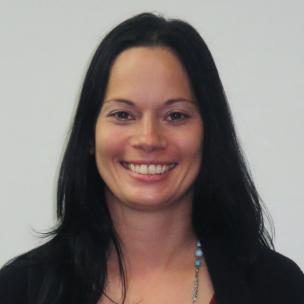
Emily Kraus
United States
PhD candidate in Entomology
Louisiana State University
I grew up in rural New Alsace Indiana, USA. In 2007 I completed a Bachelor of Science majoring in entomology at Purdue University, followed by an M.S. in entomology at Kansas State University. After that, I worked as a Peace Corps Volunteer in Senegal, West Africa, and as a contractor at Monsanto Company in St. Louis, Missouri. I am currently undertaking a PhD in induced resistance of rice Oryza sativa. I am very excited to meet scientists studying rice both from the U.S. and those visiting from Asia and Africa. I most look forward to learning about the challenges faced by rice farmers in the Philippines, and learning hands on skills related to breeding and genomics.

Gabriel LaHue
United States
M.S. Candidate in International Agricultural Development
M.S. Student in Soils and Biogeochemistry
University of California – Davis
I am originally from Santa Cruz, CA, an area of both beaches and high value agricultural production. I completed a B.S. in plant science with distinction in research at Cornell University in 2010 and joined the U.S. Peace Corps as a crop extension volunteer shortly thereafter. During my two-year service in Paraguay I became very interested in agricultural development and decided to pursue an M.S. in International Agricultural Development at UC Davis upon my return. My current work is focused on evaluating the suitability of alternate wetting and drying (AWD) for high-yielding California rice systems as a means of reducing greenhouse gas emissions, water use, and rice grain arsenic. I plan to continue similar work with the International Center for Tropical Agriculture (CIAT) this year.
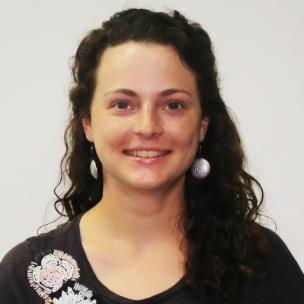
Jenna Reeger
United States
PhD student in Plant Biology
USDA Dale Bumpers National Rice Research Center
I grew up on a small vegetable farm in western Pennsylvania and attended Ohio Wesleyan University from 2010-2014 where I received my bachelor’s degree in chemistry and botany. My research projects during that time involved molecular systematics of a clade of a tropical plant family, mechanistic studies of plant-related proteins, and transgenic expression studies to optimize photosynthesis in C3 plants. I entered the Plant Biology intercollege program at the Pennsylvania State University in 2014 and study rice root genetics and physiology. I want to understand the genetic controls of rice root anatomy, particularly those for aerenchyma formation, and use GWAS to do this. My work also investigates the effects that these root anatomical traits may have on drought tolerance. I am interested in learning more about the flow of IRRI research from molecular genetics to physiological studies done in the field to development of improved varieties for farmers and how I can contribute to this effort in the future.

Andrew (Andy) Read
United States
PhD student in Plant Pathology and Plant-Microbe Interactions
Cornell University, Ithaca, NY
I received my bachelor’s degree in biology, with a focus on ecology, evolution, and conservation biology, from the University of Hawai’i at Hilo (UHH). After graduating, I stayed at UHH for two years as a research associate in a tropical plant pathology lab where we studied virus distribution in orchid nurseries as well as bacterial diseases of edible ginger. I spent the next five years working in agricultural biotech in the Greater Boston area before beginning my PhD at Cornell in 2013. I am currently studying Xanthomonas oryzae pv. oryzicola (Xoc), the causal agent of bacterial leaf streak of rice. Xoc delivers proteins that hijack the rice transcriptional machinery and result in activation of genes which aid in virulence. No major resistance genes for Xoc have been identified in rice.
